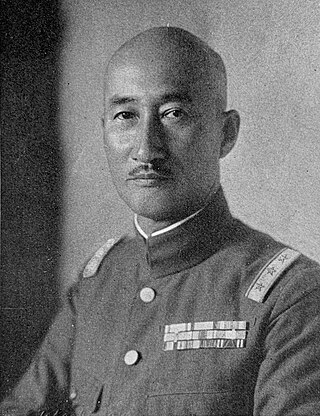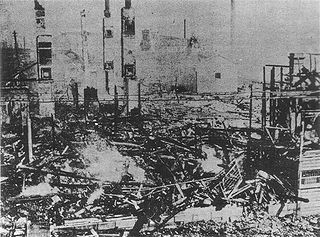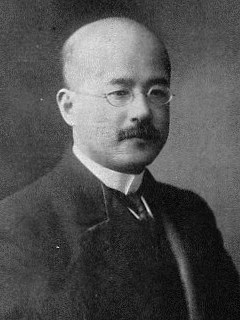| |||||
| Decades: | |||||
|---|---|---|---|---|---|
| See also: | Other events of 1918 History of Taiwan • Timeline • Years | ||||
Events from the year 1918 in Taiwan, Empire of Japan.
| |||||
| Decades: | |||||
|---|---|---|---|---|---|
| See also: | Other events of 1918 History of Taiwan • Timeline • Years | ||||
Events from the year 1918 in Taiwan, Empire of Japan.

Governor-general, or governor general, is the title of an office-holder. In the context of governors-general and former British colonies, governors-general are appointed as viceroy to represent the monarch of a personal union in any sovereign state over which the monarch does not normally reign in person. Governors-general have also previously been appointed in respect of major colonial states or other territories held by either a monarchy or republic, such as Japan in Korea and Taiwan and France in Indochina.

Count Hisaichi Terauchi was a Gensui in the Imperial Japanese Army, commander of the Southern Expeditionary Army Group during World War II.

GensuiCount Terauchi Masatake, GCB, was a Japanese military officer and politician. He was a Gensui in the Imperial Japanese Army and the Prime Minister of Japan from 1916 to 1918.

Kuniaki Koiso was a Japanese politician, military leader and convicted war criminal who served as the 28th prime minister of Japan from 1944 to 1945 during World War II. He previously served as the ninth governor-general of Korea from 1942 to 1944.

The Taishō era was a period in the history of Japan dating from 30 July 1912 to 25 December 1926, coinciding with the reign of Emperor Taishō. The new emperor was a sickly man, which prompted the shift in political power from the old oligarchic group of elder statesmen to the Imperial Diet of Japan and the democratic parties. Thus, the era is considered the time of the liberal movement known as Taishō Democracy; it is usually distinguished from the preceding chaotic Meiji era and the following militaristic-driven first part of the Shōwa era.

The Governor-General of Chōsen was the chief administrator of the Government-General of Chōsen from 1910 to 1945.

Baron Akashi Motojiro was a general in the Imperial Japanese Army and the 7th Governor-General of Taiwan from 6 June 1918 to 26 October 1919.

Baron Den Kenjirō was a Japanese politician and cabinet minister in the pre-war government of the Empire of Japan. He was also the 8th Japanese Governor-General of Taiwan from October 1919 to September 1923, and the first civilian to hold that position. Den was also a co-founder of Kaishinsha Motorcar Works, a predecessor to present-day Nissan and the original manufacturer of Datsun automobiles.

The rice riots of 1918 were a series of popular disturbances that erupted throughout Japan from July to September 1918, which brought about the collapse of the Terauchi Masatake administration.

The Allied leaders of World War I were the political and military figures that fought for or supported the Allied Powers during World War I.

Count Hideo Kodama, was a politician, and wartime cabinet minister in the Empire of Japan. He was the eldest son of famed Russo-Japanese War general Kodama Gentarō, and his wife was the daughter of Prime Minister Terauchi Masatake.
Motojirō, Motojiro or Motojirou is a masculine Japanese given name. Notable people with the name include:
Akashi is a Japanese surname. Notable people with the surname include:
Events in the year 1919 in Japan. It corresponds to Taishō 8 (大正8年) in the Japanese calendar.
Events from the year 1916 in Taiwan, Empire of Japan.

The Terauchi Cabinet is the 18th Cabinet of Japan led by Terauchi Masatake from October 9, 1916, to September 29, 1918.
Events from the year 1919 in Taiwan, Empire of Japan.
Events from the year 1917 in Taiwan, Empire of Japan.